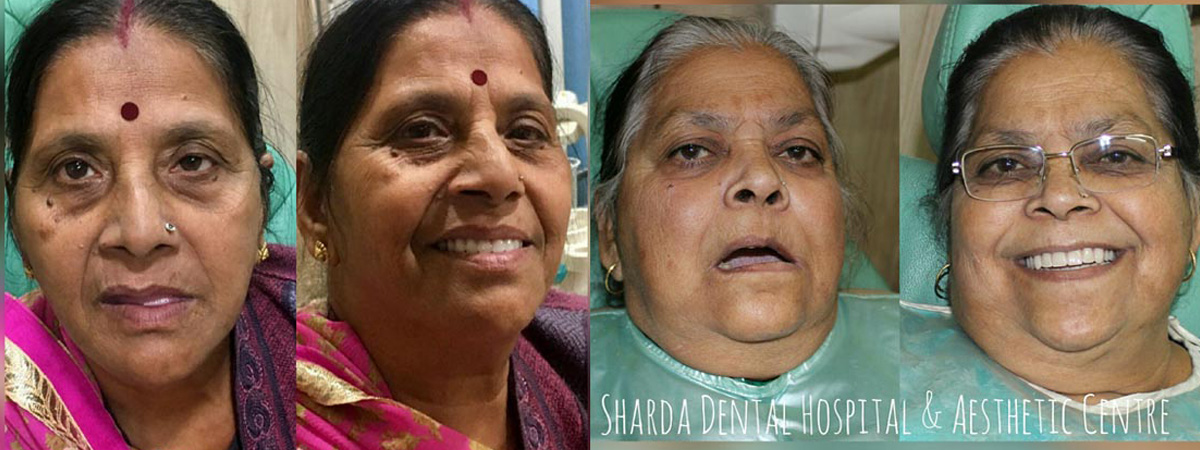
A crown or a cap is a kind of restoration that is placed on teeth which has lost a lot of their structure. There are various kinds of crowns, ranging from Zirconia,Ceramic fused to metal to full metal crowns. Your dentist will explain the advantages and disadvantages of each kind for you.
Crowns may also be used to securely attach a bridge if the structure of the surrounding teeth is inadequate. A bridge is described as a dental appliance that is used to replace one or more missing teeth. They are designed to be aesthetically appealing and to restore proper bite. Like crowns, bridges are also fully customised and made of various materials, including zirconia,ceramic and metals,bridges are bonded to the surrounding teeth and only removable by your dentist.
Both crowns and bridges are created to match the colour, height, texture, and overall appearance of your teeth. Most crowns and bridges will last for life, eliminating the need to replace them unless they fall out or become loose. You may prolong the durability of your crowns and bridges by practicing good oral hygiene and visiting your dentist for regular check-ups and cleanings.
Though many advances have been made in the field of dentistry, loss of teeth is still an ongoing problem. Currently, there are a number of options available for people who have lost their teeth. One of the most versatile and affordable is a set of removable dentures.
Conventional full dentures
Conventional full dentures are dentures that comprise a full set of upper and lower teeth. This type of denture uses suction to stay in place. They are usually made up of a pliable material which makes suction easy. However, it is for this reason that complete full dentures require routine visits to the dentist. Being pliable, the dentures are susceptible to shrinkage, thus creating an ill-fitting prosthetic that can result in the atrophy of the jawbone.
Removable partial dentures
Removable Partial dentures are dentures that replace only a limited number of teeth, not an entire set. Partial dentures are a usually single piece fitting that is supported by the remaining teeth and gums. They are much more secure than standard full dentures and are more comfortable
Flexible Dentures
Flexible dentures, as you can imagine, are made to look as natural and flexible as possible. Unlike conventional dentures that use a heat curing process which leads to dentures that become ill-fitting over time,Flexible dentures are made from a special acrylic base that eliminates the possibility of the denture shrinking and warping.
Implant supported Dentures
Some Aesthetic dentures achieve a natural appearance through the use of implants. Implants are installed in the mouth so that the dentures have something to hold onto. The aesthetic denture will either rest on or snap onto the implant. What this does is allow the denture to stay in place without the chance of it moving around, which makes the denture more comfortable than a standard one.
Loss of teeth and expensive treatment options don’t have to prevent you from continuing to lead a healthy and happy life. Removable dentures are a suitable course of treatment for many people. You deserve to give yourself the best treatment possible.
How are dentures made?
In order for dentures to be created, patients need to schedule an appointment with us. At this time, the dentist will examine your gums and other teeth to determine if dentures are the best solution for you and if so, what type. An impression will then be taken of your teeth and gums so that the dentures can be created in a dental lab. Typically, several impressions will be made so that the dentist can determine how your jaw functions and moves. Using these impressions, the lab will make a set of dentures that looks natural and fits perfectly. If necessary, adjustments will be made.
How do I care for my dentures?
Every night you need to take your dentures out. We advise patients to rinse them thoroughly then use a denture brush to remove any food particles before rinsing them again. You also need to brush your gums, tongue, and the roof of your mouth with a soft toothbrush and toothpaste. You can use an antiseptic mouthwash afterwards to kill any lingering bacteria and improve your breath. Your dentures should soak all night then be placed back in the mouth in the morning.